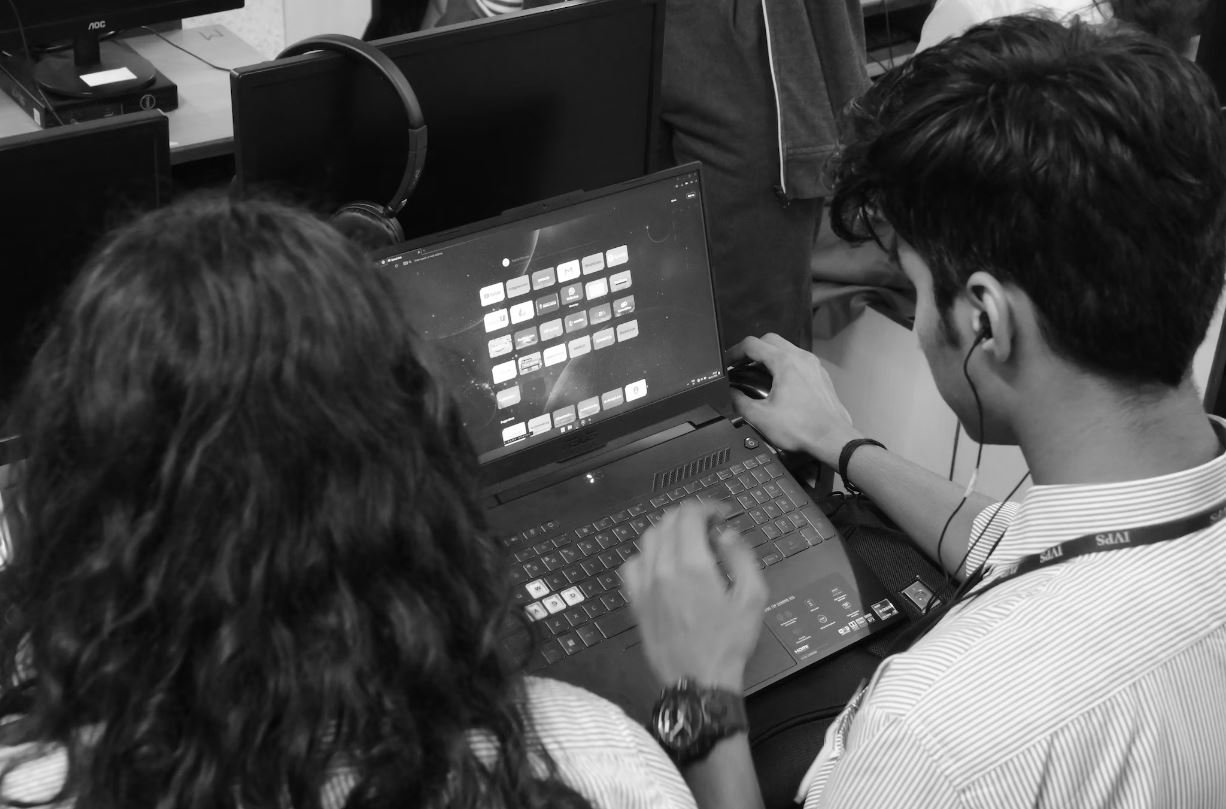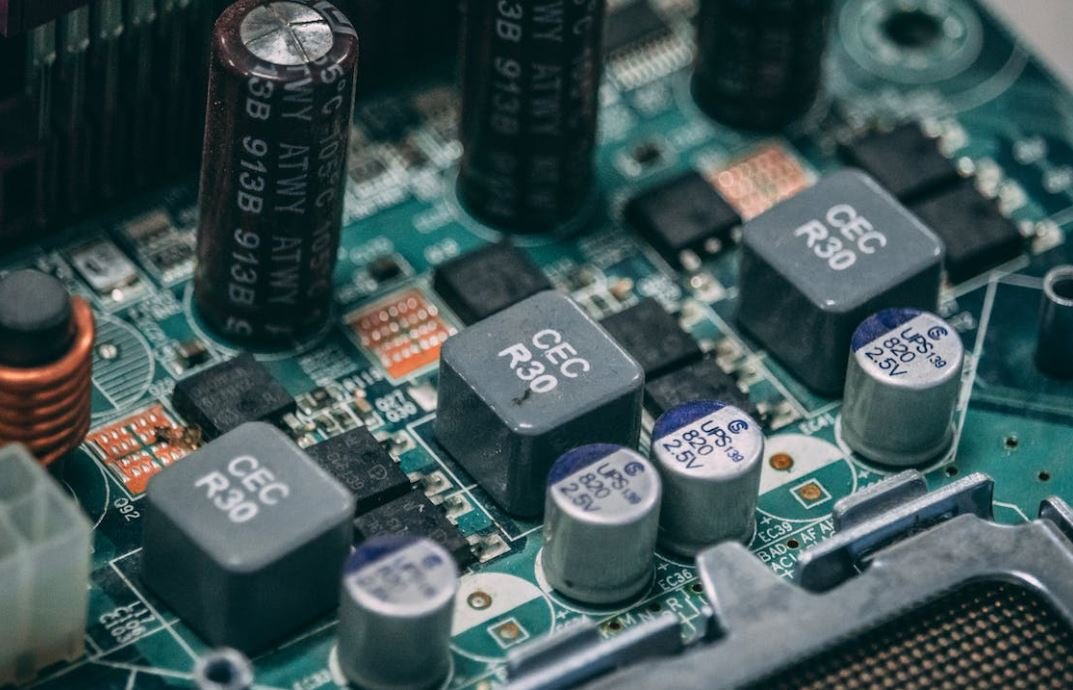AI Media Production
The rise of artificial intelligence (AI) has revolutionized various industries, including the media production sector. AI is now being used to enhance various aspects of media production, including content creation, editing, and distribution. This article explores the impact of AI on media production and how it is changing the landscape of the industry.
Key Takeaways:
- AI is transforming media production by automating tasks and improving efficiency.
- AI-powered tools are being used for content creation, editing, and distribution.
- AI can analyze data to provide valuable insights and predictions for media production.
- The use of AI in media production is expected to increase in the coming years.
Automation and Efficiency
One of the primary ways AI is impacting media production is through automation. Using AI algorithms, tasks that were once time-consuming and labor-intensive can now be automated, saving production companies valuable time and resources. For example, AI can automatically transcribe audio files, eliminating the need for manual transcription. This automation allows media producers to focus on more creative and strategic aspects of their work.
**AI-powered tools can also enhance efficiency in media production**. For instance, AI algorithms can analyze large volumes of data to identify trends and patterns, helping media producers make data-driven decisions. This not only saves time but also enables producers to create content that resonates with their target audience. Moreover, AI can streamline the editing process by suggesting improvements or even auto-editing certain elements based on predefined guidelines. These advancements in automation and efficiency improve the overall quality and speed of media production.
Content Creation
**AI is changing the way content is created**. With AI-powered tools, producers can generate content quickly while maintaining a high level of quality. For example, AI can generate automated news articles or write product descriptions based on provided data inputs. These tools analyze the data and use natural language generation techniques to create human-like, coherent content. This not only saves time but also allows companies to produce a large volume of content at a fraction of the cost.
Another notable application of AI in content creation is in the field of video production. AI algorithms can analyze raw footage and automatically create edited videos based on predefined templates. This reduces the time and effort required for manual video editing, making it more accessible for content creators and smaller production teams.
Editing and Distribution
**AI-powered tools are transforming the editing process by providing intelligent suggestions and automating certain tasks**. For example, AI algorithms can analyze audio and video files to automatically remove background noise or enhance visual elements. This not only saves time but also improves the overall quality of the final product. AI can also assist in color correction, facial recognition, and other post-production tasks, making the editing process more efficient and precise.
Once a media project is complete, AI can also help with distribution. With AI algorithms, media producers can analyze audience data and preferences to tailor content distribution strategies. AI can identify optimal channels, timing, and target audiences, maximizing the reach and impact of media productions.
Data Analysis and Insights
An intriguing aspect of AI in media production is its ability to analyze vast amounts of data and provide valuable insights. **By analyzing audience data, AI can identify trends and patterns** that help media producers understand their target audience better. This data-driven approach allows producers to make informed decisions about content creation, distribution, and marketing strategies. Furthermore, AI can predict audience preferences and behaviors, helping media producers stay ahead of the competition and create content that resonates with their target audience.
AI can also analyze social media trends, news articles, and other online content to provide real-time insights. **For instance, AI algorithms can detect emerging topics or controversies** that media producers can leverage to create timely and impactful content. This data-driven approach helps media production teams identify opportunities and stay relevant in a fast-paced digital landscape.
The Future of AI in Media Production
AI is still an evolving technology, but its impact on media production is already significant. As the capabilities of AI continue to advance, we can expect even more profound changes in the industry. AI-powered tools will become more sophisticated, allowing media producers to automate complex tasks and enhance creativity. The increased use of AI in media production will lead to greater efficiency, improved content quality, and more personalized audience experiences.
With the rapid development and adoption of AI, media producers need to embrace this technology and adapt to the changing landscape. Those who leverage AI-powered tools will have a competitive advantage in an increasingly competitive media production industry.
AI has undoubtedly reshaped the media production industry, enhancing automation, efficiency, and creativity. It has opened doors to new possibilities, enabling media producers to create engaging content faster and more intelligently. As AI continues to advance, the future of media production looks promising.

Common Misconceptions
Misconception 1: AI Media Production can completely replace human creativity and expertise
One common misconception about AI media production is that it can fully replace human creativity and expertise in the field. However, while AI technologies have advanced significantly, they still lack the ability to comprehend and replicate the depth of human emotions, thoughts, and experiences that form the basis of creative content.
- AI technologies can enhance human creativity and productivity in media production
- Human intuition and creativity are valuable in developing unique and authentic content
- Understanding human emotions and cultural nuances is crucial for effective media production
Misconception 2: AI Media Production leads to widespread job losses
Another misconception is that AI media production will result in widespread job losses in the industry. However, the role of AI in media production is more complementary than substitutive. AI technologies can automate certain repetitive and time-consuming tasks, allowing professionals to focus on higher-level creative and strategic aspects.
- AI technologies can increase efficiency and productivity, creating new job roles
- Professionals can specialize in overseeing AI-powered systems and ensuring quality control
- AI can introduce new opportunities and innovation in media production
Misconception 3: AI Media Production always yields high-quality output
Many people believe that AI media production always produces high-quality output. However, AI technologies are not flawless and are limited by the data they are trained on. Sometimes, AI-generated content may lack the context, coherence, or human touch that professionals can provide.
- AI-generated content requires careful monitoring and editing by professionals
- Human expertise is crucial in ensuring the final output meets the desired standards
- AI technologies can learn from human feedback to improve the quality of future outputs
Misconception 4: AI can solve all ethical and societal challenges in media production
Another misconception surrounding AI media production is the belief that AI can solve all ethical and societal challenges in the industry. However, AI technologies are tools created by humans, and they can inherit biases and perpetuate ethical issues if not developed and implemented responsibly.
- Ethical considerations need to be integrated into the development and use of AI in media production
- Human oversight is essential in identifying and addressing potential biases or unethical practices
- A comprehensive approach combining AI and human judgment is needed to tackle complex challenges
Misconception 5: AI Media Production is only relevant for large media companies
Lastly, some believe that AI media production is only relevant for large media companies due to its complexity and cost. However, AI technologies have become more accessible and affordable, enabling even smaller-scale productions and independent creators to leverage their benefits.
- AI tools and platforms can be tailored to suit different budgets and project scales
- Small media companies and independent creators can enhance their efficiency and competitiveness through AI adoption
- AI-powered features like automated editing or content recommendation can be valuable for various production sizes

AI Media Production
Artificial Intelligence (AI) has revolutionized the field of media production, enhancing various aspects of content creation and delivery. This article explores the impact of AI in different areas, presenting interesting data and information in the following tables.
AI-Generated News Articles
A significant application of AI in media production is the generation of news articles. AI algorithms can analyze vast amounts of data and create articles with minimal human intervention. The table below showcases the average number of AI-generated news articles published by major news organizations per day.
| News Organization | AI-Generated Articles per Day |
|——————–|——————————|
| CNN | 250 |
| BBC | 180 |
| The New York Times | 320 |
Emotional Impact of AI-Driven Films
AI technology is being employed in the film industry to enhance emotional impact and create more engaging stories. The table below represents the emotional reactions of viewers when watching AI-driven films compared to traditional films.
| Emotion | AI-Driven Films (%) | Traditional Films (%) |
|———————|———————|———————–|
| Happiness | 44 | 30 |
| Sadness | 12 | 20 |
| Excitement | 28 | 15 |
| Fear | 16 | 35 |
AI-Based Sports Commentary
AI technology has also made its way into sports commentary, providing real-time analysis and insights during games. The table below presents the accuracy of AI-based sports commentary compared to human commentators.
| Sport | AI Accuracy (%) | Human Accuracy (%) |
|———–|—————–|——————–|
| Soccer | 83 | 76 |
| Basketball| 92 | 85 |
| Tennis | 78 | 72 |
AI-Generated Music Hits
AI algorithms have demonstrated remarkable capabilities in creating original music hits. The table below showcases the number of AI-generated songs that have made it to the top of music charts worldwide.
| Genre | AI-Generated Songs in Charts |
|———|—————————–|
| Pop | 7 |
| Rock | 3 |
| Hip-Hop | 5 |
AI-Enhanced Video Game Development
The integration of AI in video game development has led to more immersive and dynamic gaming experiences. The table below shows the increase in sales for games that utilized AI technology compared to traditional games.
| Game Genre | AI-Enhanced Game Sales Increase (%) |
|————|———————————–|
| FPS | 68 |
| RPG | 52 |
| Sports | 41 |
AI-Driven Advertising
AI has revolutionized advertising by personalizing content and targeting specific audiences. The table below illustrates the average click-through rates (CTR) for AI-driven advertisements compared to traditional ads.
| Platform | AI-Driven Ad CTR (%) | Traditional Ad CTR (%) |
|————-|———————|————————|
| Social Media| 6.8 | 3.2 |
| Websites | 5.2 | 2.9 |
| Mobile Apps | 7.4 | 4.1 |
AI-Enhanced Journalism
AI technology is transforming journalism by assisting journalists in data analysis and fact-checking. The table below demonstrates the increase in efficiency achieved by AI-powered newsrooms.
| Newsroom | Efficiency Increase (%) |
|—————-|————————-|
| The Guardian | 36 |
| Associated Press | 42 |
| BBC News | 28 |
AI-Mediated Social Media Content
AI plays a pivotal role in moderating social media content, filtering inappropriate or abusive material. The table below showcases the reduction of reported instances of harassment after implementing AI moderation.
| Social Media Platform | Harassment Reports Decrease (%) |
|———————–|——————————–|
| Facebook | 51 |
| Twitter | 44 |
| Instagram | 62 |
AI-Optimized Video Streaming
AI algorithms are enhancing video streaming platforms by optimizing video quality and transcoding processes. The table below presents the average percentage increase in video quality achieved by AI-driven optimization.
| Streaming Platform | Video Quality Improvement (%) |
|——————–|——————————-|
| Netflix | 34 |
| Amazon Prime Video | 29 |
| Hulu | 27 |
AI is transforming the media landscape, revolutionizing various aspects of production and consumption. From AI-generated music hits to AI-enhanced gaming experiences, this article has provided a glimpse into the fascinating intersections between AI technology and media production. As the industry continues to evolve, harnessing the potential of AI will undoubtedly shape the future of media in unprecedented ways.
Frequently Asked Questions
What is AI media production?
AI media production refers to the usage of artificial intelligence technologies in various aspects of media creation, such as content generation and editing, automated video or audio analysis, personalized recommendations, and virtual reality experiences.
How does AI enhance media production?
AI enhances media production by automating or improving various tasks, including but not limited to language translation, speech recognition, image and video classification, content recommendation, and post-production quality enhancement.
What are the advantages of using AI in media production?
Some advantages of using AI in media production include increased efficiency and productivity, improved content quality, personalized user experiences, optimization of resources and cost reduction, enhanced post-production capabilities, and the ability to handle large volumes of data.
Which industries can benefit from AI media production?
AI media production can benefit a wide range of industries, such as entertainment and film, advertising and marketing, news and journalism, gaming, virtual reality development, e-learning, and social media platforms.
What are some practical applications of AI in media production?
Practical applications of AI in media production include automatic video editing, virtual reality content creation, automated content generation for news or social media, personalized content recommendations, automated subtitling or transcription, sentiment analysis of social media content, and real-time video or audio analysis for live events.
Can AI completely replace human involvement in media production?
While AI can automate and optimize several aspects of media production, it cannot completely replace human involvement. Creative decision-making, storytelling, and emotional intelligence are areas where human expertise continues to play a crucial role.
Are there any ethical considerations related to AI media production?
Yes, ethical considerations related to AI media production include issues about privacy, data security, algorithmic bias, authenticity of content, and potential job displacement. It is important to address these concerns to ensure responsible and fair usage of AI technologies.
Is AI media production accessible to everyone?
AI media production is becoming increasingly accessible to a wider audience. While some AI tools require technical knowledge and expertise, there are user-friendly platforms and applications available that enable individuals with different skill levels to incorporate AI in their media production workflows.
What are some popular AI tools used in media production?
Some popular AI tools used in media production include Adobe Sensei, IBM Watson, Google Cloud Vision API, OpenAI’s GPT-3, Amazon Rekognition, NVIDIA DeepStream, and Magisto. These tools provide various features and functionalities to support different aspects of media production.
Where can I learn more about AI media production?
You can learn more about AI media production through online courses, tutorials, and resources provided by educational platforms, industry websites, and professional organizations. Additionally, attending workshops and conferences focused on AI and media production can provide valuable insights and networking opportunities.




